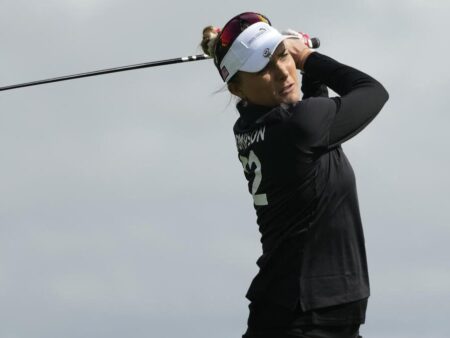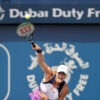In a decision that underscores the strategic demands of the professional tennis circuit, Russian stars Karen Khachanov and Andrey Rublev have withdrawn from the doubles competition at the prestigious Shanghai Masters. Their abrupt departure from the pair`s draw came hot on the heels of unexpected early exits in their respective singles campaigns, prompting a closer look at player management and the relentless grind of the ATP Tour.
The Immediate Aftermath: A Walkover for Goransson and Michelsen
The withdrawal meant that their scheduled second-round opponents, Sweden`s Andre Goransson and American Alex Michelsen, advanced automatically via walkover. While a win is a win, even without striking a ball, it invariably leaves fans and competitors wondering about the circumstances that lead to such decisions. For Goransson and Michelsen, it`s a direct route further into the tournament, a beneficial, if unspectacular, outcome.
Singles Missteps: The Precursor to Withdrawal
The duo`s decision to forgo their doubles commitment appears directly linked to their challenging performances in the singles draw. Khachanov, seeded 11th, suffered a surprising defeat to Chinese wildcard Shang Juncheng, losing 6-7(3), 3-6. Meanwhile, seventh seed Rublev, a typically fiery competitor, also stumbled at the first hurdle against Yoshihito Nishioka, going down 6-2, 1-6, 4-6. Both losses were unexpected upsets, especially for players of their standing, at a critical Masters 1000 event.
The Masters 1000 events, often referred to as `mini Grand Slams,` carry significant weight. For top players, an early exit from singles can prompt a swift re-evaluation of remaining tournament obligations, especially if physical or mental fatigue is a factor.
Strategic Retreats: More Than Just Fatigue?
In the high-stakes world of professional tennis, player withdrawals from doubles after a singles loss are not uncommon, though perhaps more frequently observed in the later stages of the season when cumulative fatigue becomes a dominant theme. Such decisions often stem from a confluence of factors:
- Physical Conservation: Even relatively minor aches or the sheer physical toll of singles matches can make playing additional doubles matches an unnecessary risk. Protecting the body for the next tournament or the upcoming season is paramount.
- Mental Recharge: An early singles loss can be mentally taxing. The opportunity to reset, regroup, and avoid further competitive stress can be invaluable.
- Prioritization: For players like Khachanov and Rublev, singles ranking and performance typically hold far greater importance than doubles. Once the primary goal (singles success) is no longer achievable in a given tournament, continuing in doubles may be deemed counterproductive.
- Travel and Training: An earlier exit allows for more flexibility in travel to the next event or dedicating time to targeted training sessions to address weaknesses exposed in previous matches.
One might even suggest a subtle irony here: sometimes the path of least resistance — a withdrawal — becomes the most strategic move in a career defined by relentless resistance.
The Broader Picture: Navigating the Demanding ATP Calendar
The ATP calendar is an unrelenting beast, stretching from January to November with tournaments across the globe. Players constantly juggle travel, training, competition, and recovery. Decisions like those made by Khachanov and Rublev highlight the pragmatic approach many professionals adopt to manage their careers. It`s a calculated risk management, balancing immediate competitive desires against long-term health and performance goals. While it might disappoint some fans eager to see them compete, it reflects a professional understanding of what it takes to stay at the top.
As the Shanghai Masters continues, the absence of Khachanov and Rublev from the doubles draw serves as a quiet reminder of the behind-the-scenes calculations that shape the journey of professional tennis players. Their focus will undoubtedly shift to preparing for upcoming challenges, aiming to rebound stronger and ensure their continued presence among the sport`s elite.











